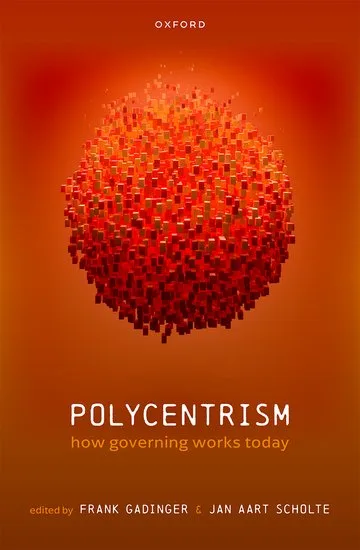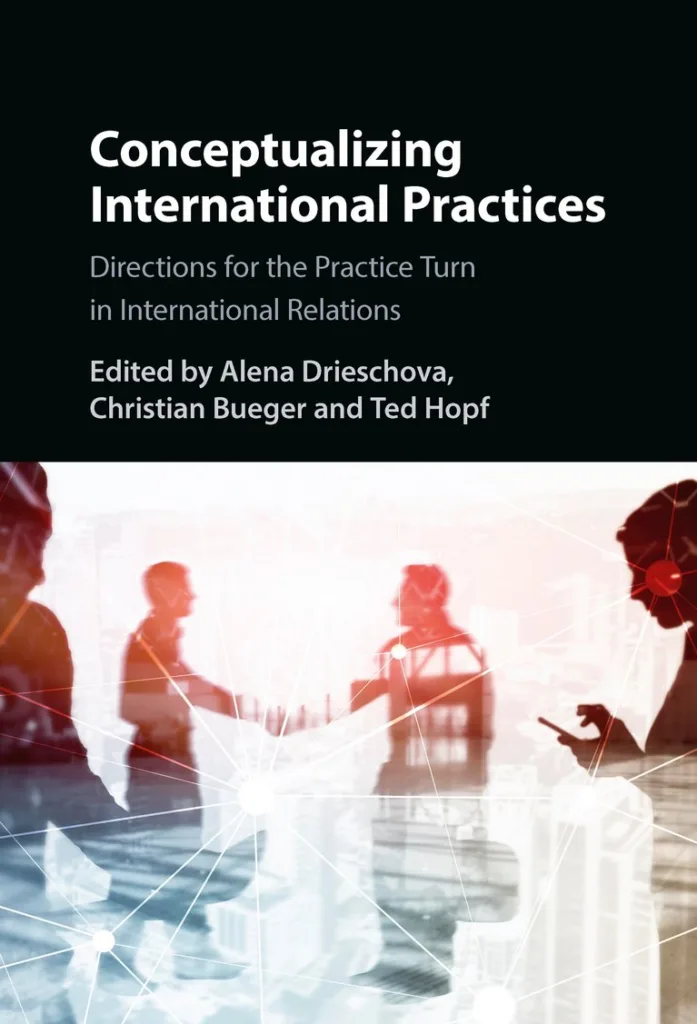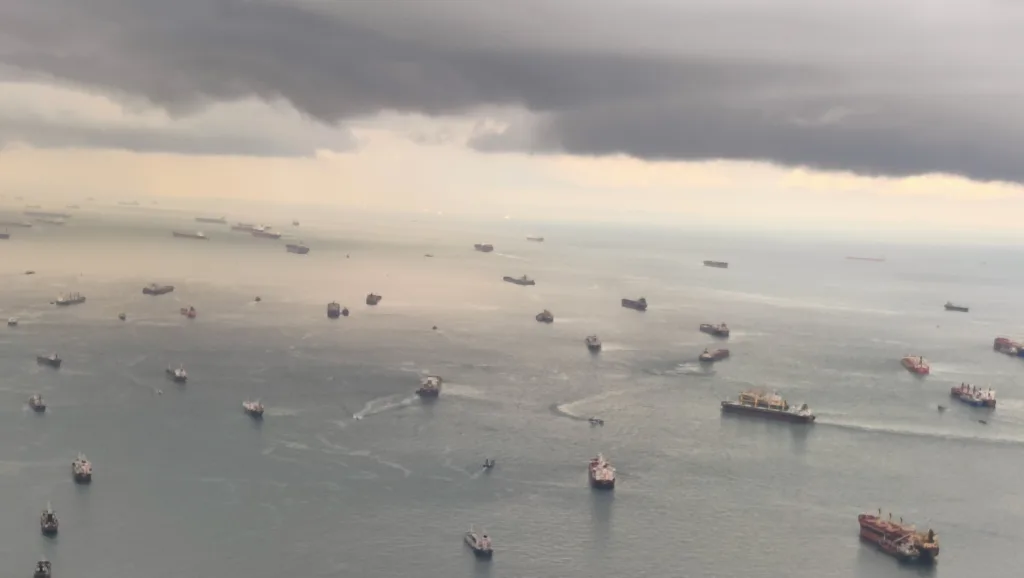Critical maritime infrastructure protection (CMIP) is since the Nord Stream attacks in the Baltic Sea of 2022 a political priority. What are maritime infrastructures, what threats and risks are they facing, and how can they be best protected? These are the questions we address in a new article now out as open access with Marine Policy.
Category Archives: News
New article on global ocean politics
In a new article published in International Affairs, Felix Mallin and I investigate the current state of global ocean politics. Highlighting the dramatic changes in awareness and rethinking the oceans, we show how the debate is increasingly organized by four new ‘blue paradigms’: maritime security, blue economy, ocean health, and blue justice.
We explore each of the blue paradigms in detail and discuss how they render the current state of the oceans problematic in different ways. In consequence, the proposed policy solutions and instruments diverge quite substantially, and new ways of forging synergies between the paradigms must be identified.
European Council away day on maritime security
As part of the presidency of the European Council, Sweden is inviting the members of the Council working group on maritime security for an away day. The program focuses on the future of maritime security, the Baltic Sea, as well as a range of social, cultural and military-related visits and activities. The event takes place in Karlskrona, the main Swedish naval base in the Baltic, and a city with a long maritime heritage, 13-15.7.2023.
Participating in the event, I am giving a talk on critical maritime infrastructure protection in Europe with a focus on the North Sea, as well as participating in a roundtable on the future of maritime security in the EU.
Protecting North Sea infrastructure – new research partnership
The North Sea is on its way to become the power house of Europe. Ongoing investments in green infrastructures, including wind farms, energy islands, hydrogen production and carbon storage make the North Sea a vital strategic region. Since the Nord Stream attack, the latest, it is known that maritime infrastructures are vulnerable to attack and damage. How can the maritime infrastructures be better protected?
This is the key question that we explore in a new partnership between the University of Copenhagen and the University of Edinburgh led by Andrew Neal and I. With seed funding from the Edinburgh-Copenhagen Strategic Partnership Initiative we will conduct explorative research on infrastructures in the region, threats and vulnerabilities, as well as technical and political solutions.
New article explores communities of practice and global ocean governance
In a new article that has just been accepted by Global Studies Quarterly, Maren Hofius, Scott Edwards and I address a major question of recent ‘community of practice’ theories. Community of practice is one of the major strands of international practice theory. Yet, it has often been of limited use, since it narrowly investigates isolated community. Pushing the debate forward we ask: If the world is populated by communities of practice, how do these interact?
We propose a new analytical framework through which we can study this interaction. To illustrate its value we discuss instances of ocean governance. We show how ocean summits, special representatives and maritime domain awareness are spaces and actors that facilitate interaction.
How can assemblage thinking help to understand contemporary governance?

In a new book chapter that came out today, Tobias Liebetrau and I show how one can use assemblage theory to understand complex polycentric governance processes. The chapter provides an easily accessible introduction to assemblage thinking and shows it can be used as an analytical framework. We discuss empirical examples from maritime security and cyber security that show how we can better understood governance tools, such as best practices and public-private partnerships.
The chapter is part of a volume, edited by Frank Gadinger and Jan Aart Scholte which provides a concise introduction of different theoretical approaches to polycentric governance. It is published with Oxford University Press and available for free here.
Lecture on maritime security @IMLI
Today, I had the pleasure to give a lecture to the students of the specialized course in International Maritime Security Law at the International Maritime Law Institute (IMLI), Malta.
In my lecture I addressed the role of the European Union as a global maritime security provider. I reviewed the evolution of the EU’s maritime security thinking starting out from early counter-piracy operations in the 2010s and the expansion of capacity building programs on a global level.
I also discussed the ongoing update of the EU’s Maritime Security Strategy and the new priorities it sets out, including in the fields of capability development, maritime domain awareness and critical maritime infrastructure protection.
Roundtable and book launch on international practice theorizing
On the 10th of May we are discussing the state and future of international practice theorizing at an event in Copenhagen.

Practice theorizing has become one of the most important approaches in political science and international relations. This roundtable reflects on the state of the debate in the light of the recently published book “Conceptualizing International Practices” (Cambridge University Press, 2022).
The book edited by Alena Drieschova, Christian Bueger and Ted Hopf, engages in conversations around key concepts, like power, change, normativity, or knowledge. It shows the value of theorizing politics and the international through practice.
Theorizing practices: Taking the next steps
Roundtable and book launch, 10.5.2023, 14.30-16.00
Department of Political Science, CSS, Øster Farimagsgade 5, Building 4, Room 4.2.26
Speakers: Christian Bueger (chair), Alena Drieschova (Cambridge University), Jon Austin, Rebecca Adler-Nissen (Department of Political Science), Bente Halkier (Department of Sociology), and Nora Stappert (Faculty of Law). All are welcome.
Some observations from the Singapore maritime security conference
Over the last couple of days, I had the pleasure to attend the International Maritime Security Conference (IMSC) organized by the Singapore navy.

The conference is a bi-annual heads of navy meeting accompanied by a defense exhibition (Imdex), a fleet show, as well as side events organized by the maritime security program by RSIS. The conference might not have an iconic name, but is the most important gathering of navies and maritime security experts in the region. It was my second time attending.
Here are 5 observations from the event:
Continue readingConference in Singapore

From the 3rd to the 5th of May, I will have the pleasure to attend the International Maritime Conference, organized by RSIS and the Singapore navy.
I am also scheduled to attend a series of side events focused on different aspects of maritime security in Southeast Asia and the Indo-Pacific. The conference provides an ideal opportunity to gauge where the maritime security debate in the region is heading.